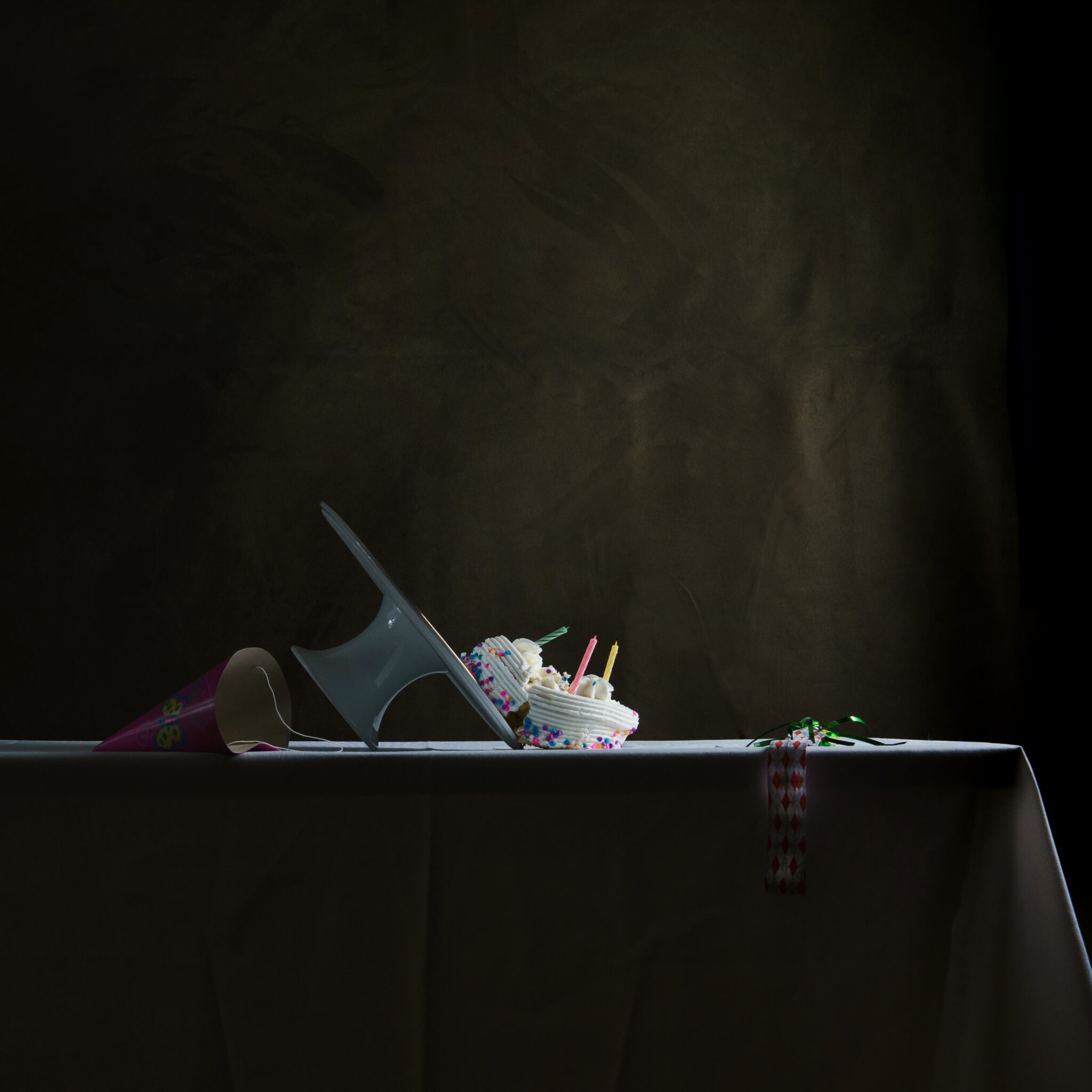Posts by Grief Stories
Teresa – Understanding people with intellectual disabilities and grief
Teresa – Understanding people with intellectual disabilities and grief
Teresa shares an example and discusses the importance of truly understanding people with intellectual disabilities when they are telling us their stories
Teresa – Pierre’s legacy
Teresa – Pierre’s legacy
Teresa shares the story of Pierre and how his medical needs required a move to a long term care facility. He declined very quickly when he was away from people he knew and the familiarity of his surroundings. His story motivated Community Living Dufferin to start providing supportive services and resources in order to have people stay in their home at their end of life.
Teresa – Moving forward with support for people with intellectual disabilities and grief
Teresa – Moving forward with support for people with intellectual disabilities and grief
Teresa talks about the history of palliative care in how people with intellectual disabilities were supported and how it should be now
Teresa – Main issues with intellectual disabilities and grief
Teresa – Main issues with intellectual disabilities and grief
Teresa shares some of the main issues that people with intellectual disabilities in grief such as communication and size of their circles
Teresa – Intellectual disabilities grief and time to process
Teresa – Intellectual disabilities grief and time to process
Teresa explains the importance of giving time when communicating with people who have intellectual disabilities
Teresa – Grief and people with intellectual disabilities
Teresa – Grief and people with intellectual disabilities
Teresa discusses some of the key issues facing people with intellectual disabilites in grief. She addresses the importance ot taking time to understand.
Teresa – The journey in supporting people with intellectual disabilities and grief
Teresa – The journey in supporting people with intellectual disabilities and grief
Teresa talks about the importance of the philosophical change in helping people with intellectual disabilities die with dignity, how we can focus on what they need and the individual experiences
Grief and Disability: Carrie’s Story
By Carrie Batt, Grief Educator
My son says I am a mover and a shaker. He tells his friends that because of my extensive travels abroad and my volunteering. When his friends ask: “Why did she do that?” he always tells them “Because my mom believes that ‘anything is possible’.” As I look back on my journey, I know where I picked up this motto. When my baby brother was born, the doctors told my parents: “he will not walk, talk, nor know who you are”. From that day on my parents embodied that motto ‘anything is possible’ and in the end my brother does far more than walk and talk. This circumstance introduced me to the disability community knowing that people with disabilities deserve and can do more. Interestingly, I have had the privilege of working within the developmental sector in a variety of positions for more than thirty years.
In 2018, I added to my parents’ motto ‘anything is possible’ and included ‘everyone is worth it’. I added those words to the motto right after I had attended a kintsugi workshop offered by Rami Shami, a prominent member within the deathcare community. As soon as I realized that Rami had spent the last 30 years caring for the dying. I inquired about his experience in death, dying and disability. Rami unfortunately, had no experience in supporting people with a disability who were dying. Upon learning about the sheer lack of support and expertise on this topic, I proceeded to complete the end-of-life training with Beyond Yonder Community Deathcare program. Soon after, SEOL Care was created, which offers a disability-sensitive approach to death, dying, and disability.
It has become clear to me over time that we have much work to do to ensure the delivery of disability-sensitive grief literacy and grief support. In March of 2022 my proposal for four 1-hour sessions was approved, we provided the program for 20 participants. My heart was full in each session.
My heart remains full of hope that conversations, education, and expertise about disability sensitive end of life care and grief support will gain momentum as more and more people join in on this vital conversation.
Currently, there are several rays of hope that suggest grief education and support can and will be offered in a more inclusive way. As a certified grief educator, I now offer online disability-sensitive grief support services for individuals and groups. My employer is offering disability-sensitive grief literacy sessions. The Bereavement Ontario Network has shared information through their newsletter and in a network webinar, where the gentleman I support and I were the guest speakers. Bereaved Families of Ontario have been receiving multiple requests to provide grief resources for the neurodivergent community. Additionally, Bereaved Families of Ontario are seeking out speakers with lived experience related to grief and under-represented communities for their grief literacy series. I remain grateful knowing that these are hopeful times, and these examples are a positive step in the right direction.
Birthdays, Anniversaries, and Other Special Days
Rachel Herrington – Social Service Worker Graduate, Third Year Psychology Student, Equal Rights and Community Advocate
It has been 10 years since my grandmother passed away and it never fails, every year leading up to her birthday I spend weeks with a pit of sadness and remorse in my stomach. I spend my days feeling this way and not understanding why then something makes the date catch my eye and it hits – It’s her birthday.
When we are grieving, some days are more difficult than others. Grief comes in waves like the sea and can feel like an intertwining labyrinth of emotions. Birthdays, anniversaries, and special dates that are associated with our loved one who has died can contribute to more emotionally intense days which can be worsened through the anticipation and “what ifs” of the upcoming day. These difficult days can leave us feeling defeated and it can almost feel like we’ve taken two steps backward in our grieving process, but grief does not have a timeline, and these feelings of setbacks are opportunities for healing.
Before the Day:
Communicate and set boundaries with others – think about how you want to approach the day and share your wants, needs, and desires with others. Clearly communicating your wants and needs with others will allow the opportunity for you to set the expectation for the day which can help relieve the intense feelings of anticipation.
Remember there is no right or wrong way to celebrate special days – It is important to remember that there is no right or wrong way to grieve and there is no written code or rule on how these special days are to be approached. However you decide to approach the day is the right way.
On the Day:
Allow yourself the opportunity for space from others – it is important to allow there to be an opportunity for you to step away and have a safe space to feel your emotions if you need to. If you are attending someone else’s home for the occasion plan a way that you can step away or leave with ease if you need to.
Find something that grounds you when intense emotions arise – if intense emotions are arising it can be helpful to find something to help ground you in the moment. This could be a physical item such as a small trinket in your pocket that you can hold, squeeze, and focus on in your hand, or it can be through positive mental imagery, deep breathing, and/or stress relieving acupressure, etc.
Take deep breaths – practicing deep breathing can help reduce stress and can increase resiliency during highly emotional or stressful situations.
If things don’t go as planned, that is okay – grief is a process with no timelines or set of rules, and sometimes things do not always go the way we plan and that is okay. Allow yourself time, patience, and understanding while you adapt to living with your unique grief experience.
Jacqueline – Art Therapy & Grief
Jacqueline – Art Therapy & Grief
Jacqueline discusses about art therapy and how it brings a special layer to help move through grief
Jacqueline – My Story
Jacqueline – My Story
Jacqueline talks about getting through the feelings after her mother’s death
Jacqueline – Where to store art works
Jacqueline – Where to store art works
Jacqueline explains how art can be like journal entries that you would keep private


